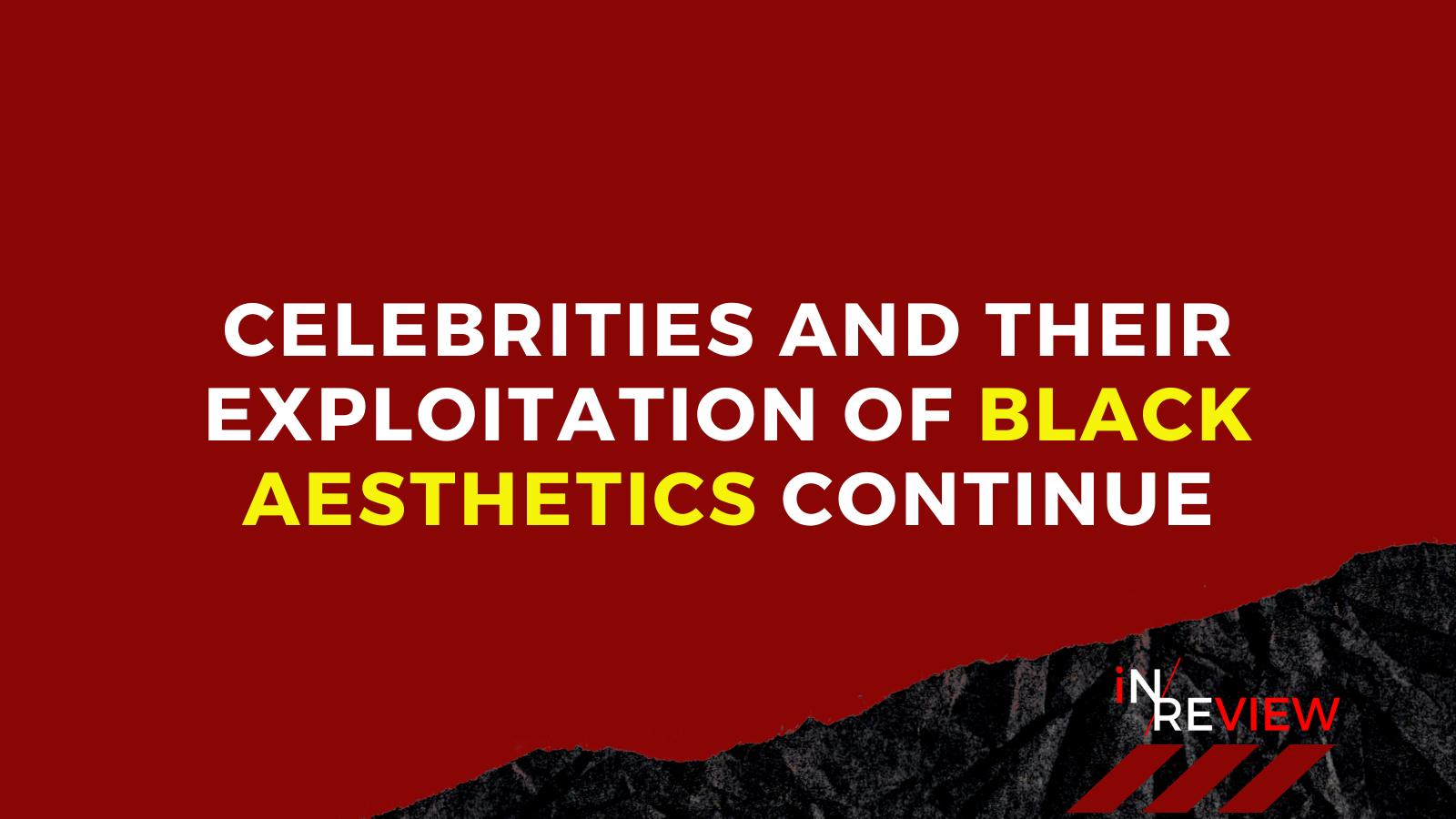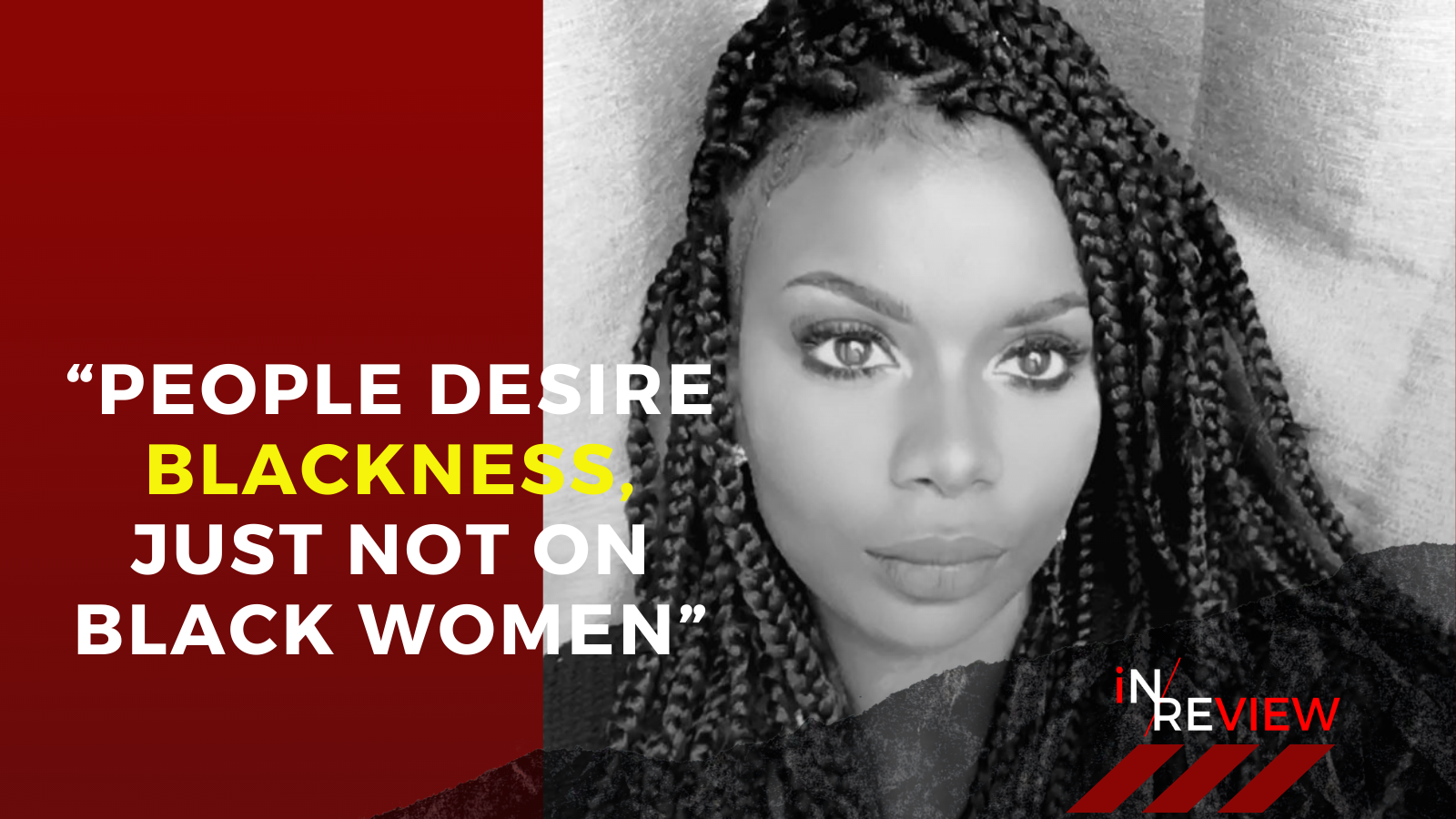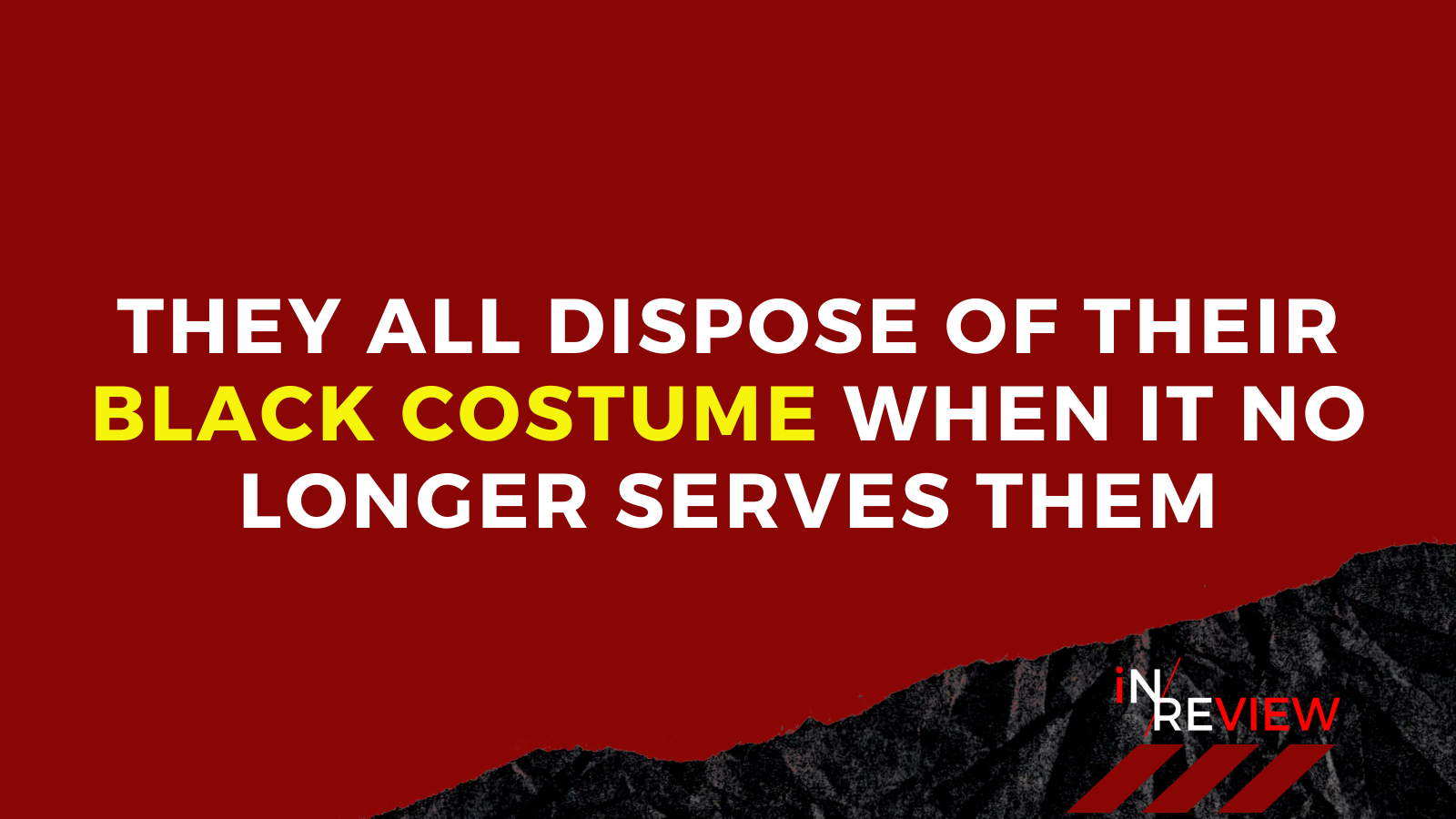- NYC Residents Urged to Stay Indoors as Blizzard Could Turn into ‘Bomb Cyclone’
- Trump Raises Global Tariffs, Increasing Chaos and Uncertainty Worldwide
- Jamie Carragher admits he was wrong about Arsenal signing after Tottenham win
- Christian Nègre accused of drugging women during job interviews in France
- EU lawmakers suspend EU-US trade agreement following US Supreme Court ruling
- Children intervene in parents’ brawl at under-14s football match | News UK
- Wayne Rooney says Arsenal star has ‘not been good enough’ under Mikel Arteta
- Punch the baby monkey finds acceptance in his troop at Ichikawa City Zoo
"I tried to figure out what made me so uncomfortable"
On Celebrity “Black Fishing”, How To Appreciate And Not Appropriate & Why Adele Got It Right
Former Little Mix band member Jesy Nelson is the latest celebrity to be accused of ‘Blackfishing’ after she released her new track “Boyz”. And from the moment it was released it faced massive backlash. And rightly so.
“As I watched former Little Mix member Jesy Nelson’s new music video for her debut solo single “Boyz,” I tried to figure out what made me so uncomfortable. Was it the white guys in poorly done cornrows? Was it the concept — the mostly white neighbourhood of “Perfectville” being disrupted by people dressed as if there was a B2K reunion with a white woman from Dagenham, Essex, leading the charge? Or was it that the same white woman who I had seen win X-Factor in 2011 as one-quarter of Little Mix, was now the same complexion as her featured artist Nicki Minaj? The last one was especially disconcerting — it’s not just a tan.” – Natasha Mulenga for TeenVogue
The lines around what is acceptable and what isn’t has been widely discussed over the last few years. But celebrities and their exploitation of Black aesthetics continue. Here we look at the Jesy Nelson story, how to appreciate and not appropriate black culture and why Adele handled her cultural appropriation backlash right.


"If you held our outrage in the same regard you held Black culture, maybe you’d listen."
On Jesy Nelson, “Blackfishing,” and Discourse Deja Vu
“Appropriation vs. appreciation isn’t a new discourse — it’s one that has been happening for years, one that by now, artists globally should be aware of.”
Teen Vogue writer Natasha Mulenga reflects on former Little Mix member Jesy Nelson’s new music video, “Boyz.”
In her op-ed, she writes that Black artists are driving popular culture but it’s the white artists and celebrities creating “lacklustre imitations” who are gaining huge rewards.
White women artists know being “racially ambiguous” is more desirable than being black. The article highlights that Jesy Nelson isn’t the first artist to “darken her skin and appropriate music created by Black artists.”
“They dip their toes into Hip-Hop and R&B, and suddenly their skin is more tanned, they’re wearing baggier streetwear, and “hood aesthetics” are all over the music video. They nearly always have the co-sign of a Black rapper or two. Blackness becomes a concept to them. Often, they decide later to “grow up” and return to their core audience, denouncing their Black music influences as part of a rebellious stage.”
Mulenga says Jesy’s music video is more than “personal aesthetic appropriation” as she perpetuates the worst stereotypes about Black people.
“People desire Blackness, just not on Black women” – Wanna Thompson
She goes on to write that what makes Jesy’s music video in which her “hoodlums” disrupt an affluent suburban area worse is that Black people face real discrimination around housing. She points out that Black homeownership rates have “disproportionately declined in the US over the past few decades.” That there are racist policies like redlining that has shaped the way home loans work in the US and perpetuate racial wealth inequality.
Jesy’s messy song and video awkwardly feature P Diddy and Nicki Minaj. According to the article the collab with P Diddy “shouldn’t be seen as some kind of universal approval marker.”
Nicki Minaj has been on Instagram Live defending Jesy against the claims of blackfishing, and writer Natasha Mulenga asks a very important question. “ Can we really expect those receiving a check for these antics to be a voice of reason?”
Jesy has “essentially denied blackfishing” the article notes, but calls out her statements given in a Vulture interview. Jesy claimed that she had never been accused of blackfishing until she left the band Little Mix, but as the article highlights, she was accused of cultural appropriation back in 2018 when she uploaded a picture of herself wearing dreadlocks and it appears she acknowledged the accusations when it happened. The writer asks with that knowledge, why was this video concept allowed to happen?
The whole situation is all the more ironic considering Leigh-Anne Pinnock (the only mixed-raced member of Little Mix) has spoken about the “effects of the music industry’s racism on her career.”
Jesy may say she loves Black culture and Black music, but what she’s doing isn’t a compliment to Black culture. “Instead of appreciating Black culture from the sidelines, there’s this need to own it, to participate in it without wanting the full experience of Blackness and the systemic discrimination that comes with it,” Thompson once told CNN.
“Ar this point, appropriation and blackfishing can’t be overlooked as ignorance.” Blackfishing upholds the pillars of colourism, and it takes the work that Black women have done to learn how to love themselves in a racist world and commodifies it.
“If you held our outrage in the same regard you held Black culture, maybe you’d listen.”
Read the full article, On Jesy Nelson, “Blackfishing,” and Discourse Deja Vu, by Natasha Mulenga on Teen Vogue


NYC Residents Urged to Stay Indoors as Blizzard Could Turn into ‘Bomb Cyclone’
New Yorkers are urged to stay indoors as a blizzard intensifies, with forecasts warning of a potential ‘bomb cyclone’ bringing severe conditions.

Trump Raises Global Tariffs, Increasing Chaos and Uncertainty Worldwide
Trump’s increased global tariffs are escalating trade tensions, adding unpredictability to the international market and impacting economies worldwide.

Jamie Carragher admits he was wrong about Arsenal signing after Tottenham win
Jamie Carragher admits he underestimated Arsenal’s signing after their impressive victory over Tottenham, highlighting the team’s unexpected resurgence this season.
"Back culture and aesthetics are imitated but Black people themselves are erased"
Jesy Nelson will dispose of her Black costume when it no longer serves her
Mikki Kendall writes for the Guardian that watching Jesy Nelson’s Boyz video felt like a flashback to an era in which “mocking Black people’s appearance was welcome in pop culture but Black people themselves largely were not.”
So what’s wrong with the video? Firstly, a lack of original ideas, writes Kendall, secondly for a woman who identifies as white British she has darkened her skin in a way that makes her look nonwhite, her grills, her lyrics about liking men who are “so hood”, her braids and much more.
Jesy Nelson has been criticised for blackfishing – a term coined to describe imagery in which Black culture and aesthetics are imitated but Black people themselves are erased.
Kendall says that Jesy and the other celebrities who have found themselves in similar situations are “scrambling to remain relevant as the beauty standard changes.”
Tina Fey references this fear of being irrelevant in her book Bossypants: “All Beyoncé and JLo have done is add to the laundry list of attributes women must have to qualify as beautiful. Now every girl is expected to have Caucasian blue eyes, full Spanish lips, a classic button nose, hairless Asian skin with a California tan, a Jamaican dancehall ass, long Swedish legs, small Japanese feet, the abs of a lesbian gym owner, the hips of a nine-year-old boy, the arms of Michelle Obama, and doll tits.”
Kendall suggests that Jesy could have been aware that criticism would be heading her way and it is why she leaned on the co-sign of Nicki Minaj.
Nicki has defended Jesy – via Instagram Live – and has also attacked Jesy’s former bandmate, Leigh-Ann Pinnock.
Pinnock, of Barbadian and Jamaican descent “naturally has many features Nelson would like to co-opt.” In what is believed to be leaked private messages, Pinnock accused Nelson of being a “horrible person” and of blackfishing. The alleged private messages were mocked and attacked by Minaj, and Jesy laughed along.
“Nelson exemplifies the exact attitude that makes this type of racist cosplay so desirable. She’s able to make jabs at the person whose appearance she’s seemingly jealous of and insists she’s not racist, too. Best of all for her, when this is over, she can wash off the tan, take off the wigs and return to white privilege without ever having to face the impact of her actions on a community. Nelson will not deal with the impact of the hyper-sexualization of Black and multiracial girls, who are more likely to be sexually assaulted and less likely to be protected.”
Kendall discusses the “age-old trick” that Nelson is relying on, the one to make an otherwise average and unremarkable white artist relevant. Many artists such as Miley Cyrus, Katy Perry and Justin Timberlake have had an “urban phase”. They moved away from pop sounds to an “edgier” aesthetic – one they later drop.
“In every case this conversion to Black culture lasts just long enough to get some hit songs under a star’s belt before they move on to another cultural costume.”
At every turn, the global influence of hip-hop or R&B is cited as an excuse, as if Black identities are now somehow in the public domain. On Monday, Nelson said she didn’t want to offend people of colour, but that she simply loved 2000s hip-hop and “just wanted to celebrate that era of music”.
The problem with these excuses is that artists confuse Black American hyper-visibility with power, assuming that the cultural influence of Black music reflects a level of access and protection for Black people that does not actually exist in the US, the UK or anywhere else. Anyone who complains about harm can be framed as overreacting – which is what Nelson seems to be asserting now.
How is it possible to understand the joy but not the pain? To identify with every part of the culture except the struggles that members face in their day to day lives? And to see hip-hop as global, but not to notice current events in your own country, or even the struggles of your own bandmate with racism in the group, much less the culture that you are mimicking for a profit?
As the author Greg Tate’s 2003 book Everything But the Burden: What White People Are Taking from Black Culture addresses, everything about Black culture is appealing to whiteness except the hard parts of being Black. And apparently that attitude is global, even among people who also experience oppression from white supremacy. It’s not the exaggerated red lip of yesteryear, but it still feels like blackface, albeit a version updated for the digital age.
Minstrel shows were among America’s first cultural exports and may well be the last import.
Read the full article, Jesy Nelson will dispose of her Black costume when it no longer serves her, by Mikki Kendall on The Guardian


Christian Nègre accused of drugging women during job interviews in France
Christian Nègre is accused of drugging 248 women during job interviews in France. The former HR director allegedly laced drinks with a powerful diuretic, leading to humiliation for victims. Women now have a month to submit their testimonies before the inquiry is closed.

EU lawmakers suspend EU-US trade agreement following US Supreme Court ruling
EU lawmakers are set to suspend the EU-US trade agreement following a US Supreme Court ruling deeming 2025 tariffs imposed by President Donald Trump as illegal. EU Trade Chief Maroš Šefčovič emphasized the importance of respecting the deal amid ongoing trade tensions.
"It’s all about respecting the origins of the music and culture you might love"
How To Appreciate – Not Appropriate – Black Culture
It’s all about respecting the origins of the music and culture you might love.
Following the Jesy Nelson Blackfishing backlash, the Independent’s Prudence Wade wrote about how to appreciate black culture and not appropriate.
Kubi Springer, CEO of SheBuildsBrands (shebuildsbrands.com), describes blackfishing as “where somebody who is not of the ethnicity they are replicating, and do not give enough kudos and credits to its origins, and try and mimic it rather than being inspired by it”.
Balackfishing is wide-reaching. “If we take it to Jesy’s video, one could argue it’s the braids in her hair, it’s the Afro extensions,” explains Springer. “She’s not in the video as a pale-skinned, brown-haired white lady – she’s in the video as a tan-skinned, Afro-haired white lady.”
Springer says blackfishing can be damaging “because historically, particularly in the music, entertainment and fashion industries, blacks and ethnic minorities who have maybe been the birth of the art form don’t get the credit necessary”, she says.
“We have seen this time and time again, where it’s on the fringes of pop culture when it’s a dark-skinned person – but it becomes mainstream when it’s [someone who is] lighter-skinned and definitely commercially successful when it’s somebody who is white that does it.” Springer gives the example of Elvis Presley bringing rock and roll to the mainstream, when it originated from black musicians.
Another issue Springer raises is how black culture can get misrepresented when not championed by black people. “It is generally seen that the more overly sexualized side of black art is picked up and then commercialised,” she explains.
“It could be argued that’s because that is what it’s believed R&B and hip hop is all about, but actually R&B – whilst there are music videos with people booty shaking, which is what we see at the beginning of Jesy’s video – R&B also had people like Jazmine Sullivan, Snoh Aalegra, Lauryn Hill, Nas and Common – who are very conscious in their lyrics, and very thought-provoking in their lyrics, and it’s not about flashy cars and Rolls-Royces and booty shaking.”
For Springer, it’s “frustrating when black art is taken, and that’s the side that is seen as a representation of black art, and the side that then becomes commercially successful”.
She suggests things are different for the younger generation, who have all “grown up on R&B as mainstream culture – for a lot of them, they don’t necessarily in their experience see it as a black thing, because they’ve experienced it from birth and therefore see it as their thing”.
However, Springer still has advice for the younger generation on how to appreciate black culture – instead of appropriating it. “I would encourage young people growing up to just respect the origins of it,” she says. “You can enjoy it, you can utilise it, you can work with it, you can recreate it – but respect the origin.
“And when you do it, be true to your authentic self. I think if Jesy had created an R&B song and just been true to her authentic self, being in the video as she is and as her personal brand should be represented – one, she would inspire white girls everywhere, rather than now making white girls feel like they need to wear Afros to be sexy and cool. And secondly, she would be respecting black girls who have Afros naturally. I think in this day and age, we just need to stand in our truth.”
Read the full article, JESY NELSON ‘BLACKFISHING’ CONTROVERSY: HOW TO APPRECIATE – NOT APPROPRIATE – BLACK CULTURE, by Prudence Wade
"There was clearly no malice behind it or ill intentions – but it was tone-deaf"

Adele’s cultural appropriation apology is a good example on how to own a mistake
The Metro’s Alicia Adejobi writes about Adele’s recent apology after she was accused of cultural appropriation.
She writes she couldn’t help “but respect her [Adele’s] ownership of the mistake” she had made. Adele opened up to Vogue recently in which she admitted to not ‘reading the f*****g room’ when she culturally appropriate Black people.
One of the standout lines from the interview was Adele addressing the cultural appropriation controversy for the first time and, more to the point, recognising where she went wrong.
While on holiday in Jamaica, and thousands of miles away from Notting Hill Carnival in her hometown of London, Adele shared a photo of herself wearing a Jamaican flag bikini with her hair in Bantu knots to celebrate the culture.
Looking back on it, she told the fashion bible: ‘I could see comments being like, “the nerve to not take it down”, which I totally get. But if I take it down, it’s me acting like it never happened. And it did.
‘I totally get why people felt like it was appropriating.
‘If you don’t go dressed to celebrate the Jamaican culture – and in so many ways we’re so entwined in that part of London – then it’s a little bit like, “What you coming for, then?”’
In true Adele humour, she added: ‘I didn’t read the f***ing room. I was wearing a hairstyle that is actually to protect Afro hair. Ruined mine, obviously.’
There was clearly no malice behind it or ill intentions – but it was tone-deaf, particularly for the time.
Adele had posted the picture when tensions had reached boiling point regarding race relations over the murder of George Floyd.
Adejobi says she remembers people having “mixed feelings” towards Adele’s homage to Jamacia. Some were offended she had her hair in Bantu Knots others didn’t see an issue in her celebrating the culture.
Alexandra Burke and Popcaan, who are both Jamaican, actually supported and endorsed her outfit.
For the writer, she says she “fell somewhere in the middle of the two”.
“It was frustrating to see a non-Black person so freely wear a traditional hairstyle for which many Black people have been prejudiced against. A hairstyle which, like braids or our natural Afro hair, would have us sent home from many a school or workplace for being ‘inappropriate’ for the environment.”
Sometimes when a non-Black person wears it, it can feel like our culture is reduced to fancy dress and only accepted when not worn seriously.
But Adejobi writes “it’s important to also recognise the intent behind it. Adele wanted to celebrate the culture which she had grown up surrounded by in London, whereas others have actively appropriated it as their everyday persona.”
Over the weekend, the cultural appropriation conversation raged on after the release of Jesy Nelson’s Boyz music video, in which she was accused of blackfishing with her skin tone a similar shade to Nicki Minaj.
Jesy released a statement denying she was trying to make herself racially ambiguous, whilst others such as the Catch Me Outside girl Bhad Bhabie has been unapologetic about wearing braids, insisting earlier this year that she is ‘appreciating’ rather than ‘appropriating’.
Regardless, it’s not for a non-Black person to determine what cultural appropriation is to another community.”
Read the full article, Adele’s cultural appropriation apology is a good example on how to own a mistake, by Alicia Adejobi on The Metro

Deep Dive
Jessy Nelson Has Gone Too Far And Needs To Be STOPPED
Adele’s cultural appropriation apology is a good example on how to own a mistake
‘Blackfishing Jesy Nelson is a hypocrite while throwing Leigh-Anne Pinnock under bus’
On Jesy Nelson, “Blackfishing,” and Discourse Deja Vu
Ex-Little Mix star Jesy Nelson defends video in ‘blackfishing’ row
What is ‘mixedfishing’ – and why is it so damaging?
Jesy Nelson will dispose of her Black costume when it no longer serves her
Jesy Nelson and Nicki Minaj’s Boyz debuts at Number 1 on the Official Trending Chart
JESY NELSON ‘BLACKFISHING’ CONTROVERSY: HOW TO APPRECIATE – NOT APPROPRIATE – BLACK CULTURE
‘Jesy Nelson’s blackfishing row is pure PR spin – and there’s evidence to prove it’
Quick Facts
Who is accused of Blackfishing?
Jesy Nelson
If you’ve been following celeb world this week, you’ve probably noticed that former Little Mix singer, Jesy Nelson, has been accused of something called ‘blackfishing’
Who is accused of Blackfishing?
Jesy Nelson
If you’ve been following celeb world this week, you’ve probably noticed that former Little Mix singer, Jesy Nelson, has been accused of something called ‘blackfishing’
What is blackfishing? The problematic trend causing celebrity controversies
Former Little Mix singer Jesy Nelson has received criticism for allegedly ‘blackfishing’ after the release of her new solo single, Boyz.
The criticism of Nelson, originally from Essex, came after she released a music video for her new single, featuring Nicki Minaj and P Diddy — however the X-Factor star has been accused of blackfishing before.
In response to the criticism, Nelson said she is “aware she is a white British woman”.
What is the difference between cultural appropriation and appreciation?
Appreciation is when someone seeks to understand and learn about another culture in an effort to broaden their perspective and connect with others cross-culturally. Appropriation on the other hand, is simply taking one aspect of a culture that is not your own and using it for your own personal interest.
What is Adele accused of?
cultural appropriation
Adele, 33, was accused of cultural appropriation in 2020 for her ensemble at Notting Hill Carnival. She admitted she “didn’t read” the room when she chose to wear the outfit and post it to Instagram.

Subscribe to Updates
Get the latest creative news from FooBar about art, design and business.



